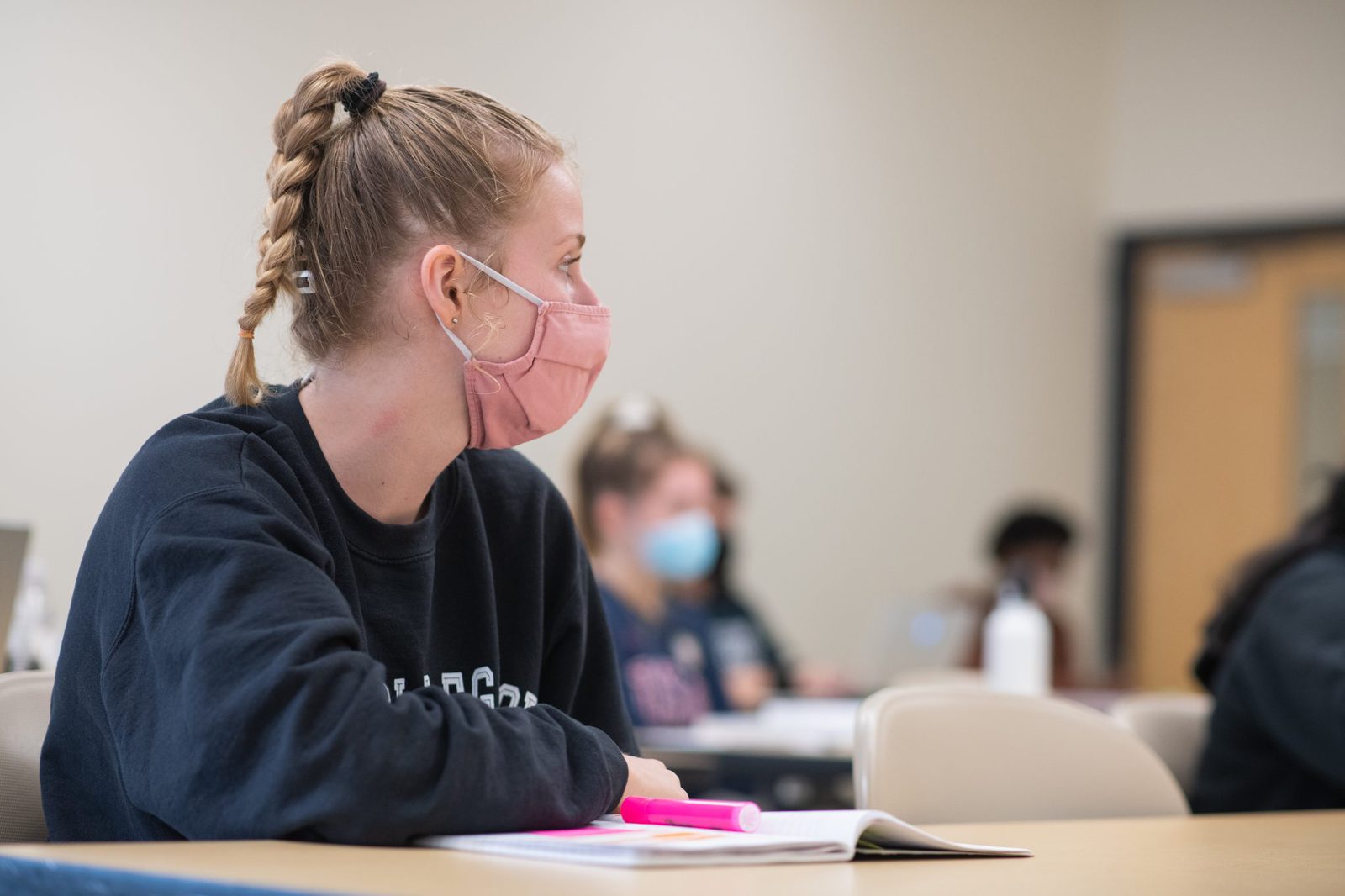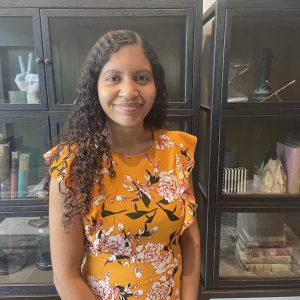Social Studies Adolescence Education

Free on-campus housing
To make the dream of becoming a teacher more affordable
As part of the Build the Teacher Pipeline Initiative aimed at addressing the nationwide teacher shortage, beginning in fall 2023, all new first-year and transfer students who major in our teacher- and special-education bachelor’s degree programs will receive free on-campus housing throughout their time in the residence halls (up to four academic years).

Choose from Multiple Pathways to Become a Social Studies Teacher
BA Social Studies Adolescence Education (with option for grades 5-6 extension)
This major qualifies students for initial certification by New York State to teach Social Studies in grades 7 through 12. Students may elect to seek certification for grades 5-6 by completing just six credits of additional coursework.
Our Social Studies Adolescence Education major stands out in that students are required to take 45 credits in social studies, better preparing them for graduate school. In addition to student teaching, our required capstone seminar course examines the history and politics related to a given topic – with a hot new topic offered each semester.
And we set up our student teaching experiences with not only a great learning experience but networking for your career in mind. students are required to student teach. Students in this major receive two student-teaching placements, maximizing the connections and relationships students will form with school district personnel.
I know I'm a good teacher, and without Saint Rose, I wouldn't be half the teacher I am today. My Saint Rose education and history and poli-sci professors were incredible."
Since graduating, Allende has been devoted to addressing social and educational inequities as a teacher and researcher. She was selected as a Fulbright Scholar, and will head to South Africa to take a closer look at these disparities.
Read her story

Rhina Allende '18
Adolescence Education and Special Education BA/ MSED Dual-Degree ASPIRE Program
Gain dual certification in New York State for teaching grades 7-12 in our five-year dual-degree BA/MSED Adolescence Special Education for Inclusive and Reflective Educators (ASPIRE) Program. In New York State, teachers are required to earn a master’s degree in their first five years of teaching. ASPIRE students have a leg up!
Saint Rose has prepared me for my current job by providing me with endless opportunities in the classroom. By giving me those opportunities, I was able to learn more about myself and my teaching style, where my comfort zone is, and how to go beyond it, while also showing me what my areas of need were before I even entered the classroom. With ASPIRE, I am able to provide my students with further support scaffolds in my classroom that allow for them to be prepared for any situation that may come their way during their learning career.
The professional development that was also offered to me through my professors and other on-campus professional organizations allowed for me to take a deeper dive into topics that I would recognize in the classroom, such as student trauma, teaching conflicts (like the Arab-Israeli conflict), and mental health in public schools.”

Jacquelyn Fossati ‘20
Social Studies Adolescence Education/Special Education BA/MSED (ASPIRE) Sixth grade social studies teacher with Harrison Central School District, Louis M. Klein Middle School Harrison, New York
Saint Rose helped shape me in many ways, which ultimately impacted my experience as a special education teacher. It has given me so many opportunities and continues to do so. Being a Saint Rose grad has also made me more marketable in the field.
The professors do a great job guiding you through the program and being available when needed. If it was not for Saint Rose, I wouldn't be where I am today.”

Xavier DeLuke ’19
Special education teacher at Glens Falls City Schools
Social Studies Concentration
Concentrations in social studies prepare students who are majoring in childhood education and seek to teach K-8 levels.
Major in History, Political Science, or History/Political Science and Stick Around for Your Master's Degree in Education
Saint Rose offers an array of master’s degree programs in our renown Thelma P. Lally School of Education. If you want to deep dive into history and/or political science, you can earn your bachelor’s degree in those subjects and then stay on at Saint Rose to learn to be the best teacher from the best education professors around.
Meet Our History and Political Science Faculty
Our faculty are great scholars, but your success is their top priority. Unlike large research institutions, Saint Rose is a place where professors invest in their students and put their energy into teaching, making for compelling classes and great learning outcomes.
I study class and empire from a Marxist perspective, and my teaching interests center on ancient, medieval, and modern European history, as well as women’s and social history and European empires.
I have done extensive research on urban labor movements, immigration, and race relations. Students appreciate the ways in which we are able to make connections between past issues that have shaped our nation’s policies and contemporary discussions of citizenship, identity, and inequality from multiple perspectives. One of my favorite courses is New York State history because students are able to relate the history of their own neighborhoods, towns, and cities to the central role that New York State played in shaping national culture and federal policy.
My research and teaching focuses on contemporary political theory (particularly gender theory and transnational social movements and collective violence). I teach courses that primarily center on race, class, and gender, including Modern Political Thought; Race and Mass Incarceration; Feminist Theory; Social Movements, Power, and the State; the Politics of Race and Representation; Political Ideologies; New York State Politics; and Marx and Marxism.
I study class and empire from a Marxist perspective, and my teaching interests center on ancient, medieval, and modern European history, as well as women’s and social history and European empires.
I have done extensive research on urban labor movements, immigration, and race relations. Students appreciate the ways in which we are able to make connections between past issues that have shaped our nation’s policies and contemporary discussions of citizenship, identity, and inequality from multiple perspectives. One of my favorite courses is New York State history because students are able to relate the history of their own neighborhoods, towns, and cities to the central role that New York State played in shaping national culture and federal policy.
My research and teaching focuses on contemporary political theory (particularly gender theory and transnational social movements and collective violence). I teach courses that primarily center on race, class, and gender, including Modern Political Thought; Race and Mass Incarceration; Feminist Theory; Social Movements, Power, and the State; the Politics of Race and Representation; Political Ideologies; New York State Politics; and Marx and Marxism.
I am a professor of political science in American politics, with a focus on racial politics, urban politics, and public policy. My dissertation at the University of California, Irvine, “Reconstructing Magnet Schools: Social Construction and the Demise of Desegregation,” was a study of the changing policy images of magnet schools in the Los Angeles Unified School District over a 30-year period. I have published multiple peer-reviewed academic articles on public policy and school segregation in urban areas. My current research project, under contract with New York University Press, is a study of race, politics, segregation, and charter schools in Albany, New York. I teach courses in U.S. Politics; research methods; public policy; racial and ethnic politics; and political power. My favorite class project is taking students on voter registration drives to promote participation and democracy during election seasons.
I am a professor of political science in American politics, with a focus on racial politics, urban politics, and public policy. My dissertation at the University of California, Irvine, “Reconstructing Magnet Schools: Social Construction and the Demise of Desegregation,” was a study of the changing policy images of magnet schools in the Los Angeles Unified School District over a 30-year period. I have published multiple peer-reviewed academic articles on public policy and school segregation in urban areas. My current research project, under contract with New York University Press, is a study of race, politics, segregation, and charter schools in Albany, New York. I teach courses in U.S. Politics; research methods; public policy; racial and ethnic politics; and political power. My favorite class project is taking students on voter registration drives to promote participation and democracy during election seasons.
Contact Us Today
Of course, if you have any questions, please reach out. We’re here to help.
Ryane McAuliffe Straus, Ph.D.
Professor of American Politics and chair of the Department of History and Political Science

